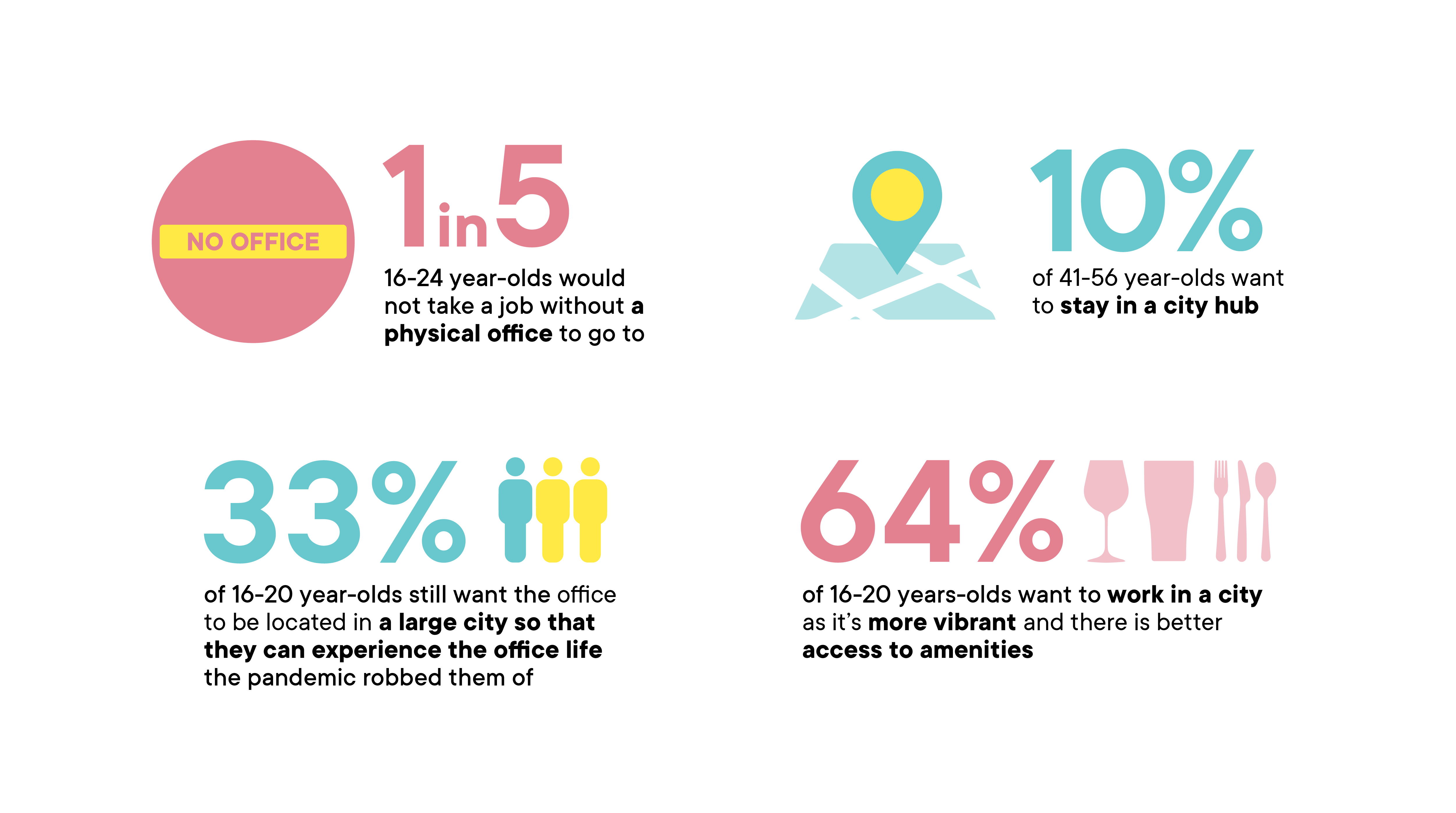The role of the office has changed. In-person meetings, collaborative spaces and home comforts are the new ‘in’, with businesses refreshing their workspaces in response to the war for talent.
With the world slowly returning to some semblance of normal, it's becoming clear that the physical workspace isn’t going anywhere.
The “gradual” return seemed to leap from one day a week to at least three set days for many - a bump back down to earth even for those desperate to abandon their makeshift home office.
So, what can employers do to ensure that their workplace not only remains relevant and appealing to their employees, but also serves as a direct reflection of the company culture and its values?
In a time where resignations are on the rise, is a poor office environment certain death for businesses today?
Fundamental office space
More workers are looking for a space to collaborate – an environment where they can be creative and productive in a way that suits them best.
Kitt’s latest survey of over 1,500 people revealed that 1 in 5 16-24 year-olds felt that having a physical office space played a fundamental role in determining whether they’d accept a potential offer, admitting they wouldn’t take a job without a physical office to go to.
For young people who, up until the pandemic, have enjoyed a thriving social life throughout their education, it’s unsurprising that after such a significant hiatus they are keen to make city moves to rekindle connections and at last embark on the employment life they’ve been looking forward to.
To add to that, 64% of those we surveyed said they did want to work in a city, given its bustling atmosphere and better access to amenities (otherwise known as pubs, bars and restaurants!)
A further 30% felt that one of the primary functions of the office space was as a training hub, providing development opportunities that people can’t access remotely. For those amongst Gen Z who may have taken on their very first job during lockdown, the challenge of learning a new role has been significant, particularly when they’ve made no real connection with anyone on their team.
Slacking every question, picking up the phone just to check in - necessary of course, but a barrier in reality. Being able to provide face to face support for new employees is unmatchable.

Must have: flexibility
The last two years have blurred the line between home and work. As a result of that, the demand for flexibility is at an all-time high, but that doesn’t just mean hours. Flexibility is something that can be embedded into workplace culture.
It’s now up to employers to cultivate a working environment where employees can bring their full selves to work. 35% of Gen Z surveyed expressed that they’re most nervous about being judged for wearing casual clothing, and 32% felt the same way about taking a full lunch break.
It’s all well and good stating that your company is comfortable with and encourages this, but it will never feel true unless the environment reflects as such. At Kitt, we block out an hour in everyone’s calendars every Wednesday, so we can all sit down together in the office for a team lunch. It’s an important part of our culture, and encourages people to take time away from their desks and build connections with colleagues.
Understandably a little over half of all respondents felt that flexible hours should be standard, and 37% were looking to lose their commute (we assume the other 63% have forgotten what it’s like to ride the Northern Line at 6pm). Casual workwear (36%) was another thing respondents cared about - because now we all realise just how incredibly comfortable elastic waistbands are.
Next-Gen expectations…
Company culture goes hand in hand with building a healthy collective workplace environment. Relationships and learnings develop through face-to-face interactions – an office space helps facilitate that.
The culture of the workplace informs company strategy as well as the office design and should not be taken for granted as this is a crucial part of what new talent are looking out for when choosing their next role.
As our understanding of the modern workplace continues to evolve, it’s more important now than ever that companies begin curating a physical office environment that embodies the positive work culture the next generation of workers expect to see. As we’ve learnt, if they don’t, they may well lose out on highly sought after talent.
Download Kitt's latest Future Leaders of the Office report to learn more.



